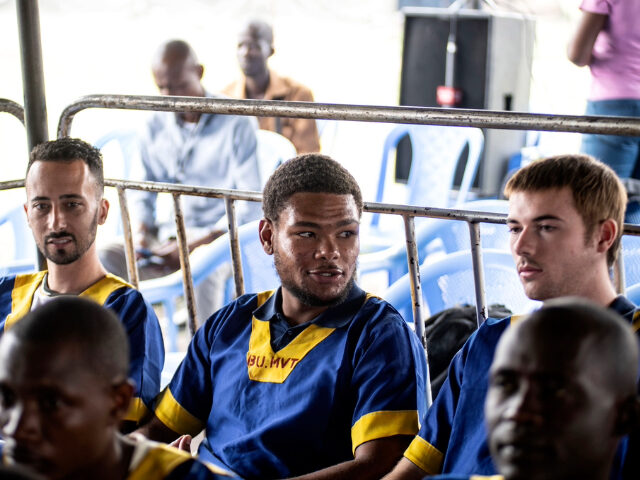The Democratic Republic of the Congo (DRC) handed out 37 death sentences in connection to the May coup attempt against President Felix Tshisekedi. Six of the defendants sentenced to death are foreign nationals, and three of them are Americans.
The coup attempt on May 19, 2024, was masterminded by an eccentric opposition leader and businessman named Christian Malanga, whom security forces killed during the attempt. Malanga was a naturalized U.S. citizen who lived in Utah for more than 20 years. He was able to rope a few U.S. citizens into his coup plot, which they claimed he misrepresented as a lucrative security contract or a luxury vacation to Africa.
Some of the people Malanga tried to recruit were high school football teammates of his son, Marcel Malanga. One of those teammates, Daniel Gonzalez, said Malanga offered to pay him up to $100,000 for working four months in the DRC as a security guard. Gonzalez declined the offer because the details sounded sketchy to him.
Marcel Malanga, now 21, was one of the three American citizens sentenced to death on Friday. The other two were Tyler Thompson Jr., 21, a classmate of Marcel’s who reportedly thought he was joining the Malanga family on an African vacation, and Benjamin Reuben Zalman-Polun, 36, a business associate of Christian Malanga.
State Department spokesman Matthew Miller said on Friday that the Biden administration was aware three Americans have been sentenced to death but has not yet attempted to intervene in the case or accuse the DRC of wrongfully detaining the U.S. citizens.
“We understand that the legal process in the DRC allows for defendants to appeal the court’s decision,” said Miller, referring to the five-day appeal window that DRC law permits.
“Embassy staff have been attending these proceedings as they’ve gone through the process. We continue to attend the proceedings and follow the developments closely,” Miller said.
Lawyers for the six foreigners sentenced to death sounded far less sanguine about the situation than the Biden State Department. Lawyer Richard Bondo said his clients were not given adequate interpreter services when they were investigated, so they might not have fully understood their jeopardy.
Marcel Malanga said during his trial that he does not speak the languages used in the DRC and claimed he participated in the alleged coup attempt because his father threatened to kill him.
The other three foreign nationals were a Belgian, a Canadian, and a citizen of the United Kingdom. All three were reportedly naturalized citizens of the DRC.
The Belgian, Jean-Jacques Wondo, is a military expert who claimed the Tshisekedi government asked him to consult on reforming its intelligence services. Wondo said he had nothing to do with the coup attempt but was instead framed by adversaries within the DRC intelligence apparatus. Prosecutors insisted Wondo was a key member of the coup, using his contacts within the intelligence services to keep Malanga’s operation secret until he was ready to strike.
Wondo’s wife begged Tshisekedi to grant him leniency because his health is “deteriorating” in prison, and he “urgently needs medical attention.”
“As all observers noted, the case against Wondo is paper thin, and his arrest was political,” said Broederlijk Delen, the Flemish development agency that employs Wondo.
The British national sentenced to death is reportedly a 53-year-old London plumber named Youssouf Ezangi. Ezangi is one of the few foreign defendants who seemed to know he was involved in a coup attempt. According to DRC officials, he said Malanga told him the plot to depose or kill Tshisekedi had “American backing.”
Little information has been made public about the Canadian defendant. Global Affairs Canada, the Canadian foreign ministry, told CBC News on Saturday it was “aware of reports that a Canadian citizen was sentenced to death in the Democratic Republic of the Congo” and is providing “consular assistance” to the defendant.
A military tribunal also sentenced 31 Congolese and acquitted 14 suspects. The hearing on Friday was conducted under a tent in the courtyard of a military prison in Kinshasa and was televised nationwide.
The DRC banned the death penalty in 2003 but reinstated it in March 2024, as the government sought to crack down on militant attacks in the eastern Congo. The DRC justice ministry said the revived death penalty would be limited to “criminal conspiracies, armed gangs, insurrection, treason, and war crimes.”

COMMENTS
Please let us know if you're having issues with commenting.